
For this feature, we caught up with Ian Sharpe, our technical director for program advisory in Australia and New Zealand (ANZ), to understand the importance of program management, how it helps manage multiple projects and interdependencies effectively, and the role digital technologies play in successful program delivery.
Let's get to know Ian:
Hi Ian. Tell us about your role at Jacobs, and what’s your favorite part of your role?
It’s my role to help clients understand when what they are trying to achieve warrants control as a program, not just a large project. To see where they are at right now and work out where and how they need to shift to deliver the outcome they are seeking, not just the output of a project. My favorite part of the role is the aha moment when clients see the significant advantages that a program management approach can truly bring them.
How does program management differ from project management?
When addressing enormous challenges, it is tempting to treat them as projects, just larger. The challenge is that this approach often fails (major delays, significant budget overruns, and diminished to completely eroded outcomes). A core reason for this is that there are far too many moving parts with a level of uncertainty – and these warrant governance and control as projects, not just deliverables. It can be challenging to see how the whole journey assembles, let alone whether it will truly connect to the desired outcome.
It only worsens as large projects become mega (typically over $1Billion, with complex stakeholder relationships and economic impacts). Bent Flyvbjerg, BT Professor Major Programme Management Emeritus at Said Business School, Oxford University, rightly characterized the iron rule of megaprojects as "Over budget, over time, under benefits, over and over again." [1]
We’re facing challenges such as rekindling economies in a COVID-19 world, addressing climate change and driving toward the United Nations Sustainable Development Goals (SDGs)- which often require mega-sized, multi-year answers involving high uncertainty. These are rightly characterized as - wicked problems.
We need a better way to break the challenge and journey down to lead through the complexities involved. That’s where program management comes in.
How does program management help manage multiple projects and interdependencies effectively?
Program management recognizes that a destination beyond the delivery is driving the investment from the outset. We call this the outcome.
The traditional answer to ‘why run a program’ rather than just as a portfolio of projects is that they enable delivery efficiencies (such as supply chain optimization, schedule acceleration, reduced cost and improved benefit delivery) that are not possible by managing the constituent projects by themselves. While this is true, this is half the story, and there’s a broader value of program management today.
As governments and corporations invest in major projects to address challenges, there is a significant disconnect between the investment to deliver the build and the investment required to deliver the outcome.
This first problem is the natural human tendency to want simple answers – and the dislike of uncertainty. That’s okay when the context of the situation you are in is obvious (well known, structured, and with proven solutions). The issue is that our challenges are typically complex; they do not have one-shot or straightforward project answers.
Dave Snowden [2] characterizes complexity as the domain of emergence. You can only see so far ahead, rather like driving in the fog in a strange country – and need to be able to check your progress, what is working (and not), and correct your course given emergent circumstances. Traditional projects which rely on a knowable journey and destination are not sufficient or reliable to get to the outcome; you cannot pivot quickly enough. Things will change and have significant ripple effects – having personally led a program that survived fire, flood and pestilence (during COVID, facing biblical plague-level challenges). The ability to adapt swiftly and effectively is essential.
Programs are designed to allow for adaptation to emergent circumstances. They contain projects and products designed together to navigate the knowable parts of the journey, test for alternatives and inform further planning tranches. These are connected into a broader framework so that progress can be appropriately steered towards the right outcome, as circumstances warrant course correction.
You wouldn’t hesitate to look for an alternative route if you knew that the road you were on wasn’t now going to get you to where you needed to go. You need an accurate GPS that tells you when you’re making great time for this part of the trip but are entirely off course.
[1] What You Should Know about Megaprojects and Why: An Overview; FLyvbjerg, Bent. From Academia: Summaries of New Research for the Reflective Practitioner | October 2014. PMI
[2] The Cynefin Co, About - Cynefin Centre - The Cynefin Co
“Programs are designed to allow for adaptation to emergent circumstances. They contain projects and products designed together to navigate the knowable parts of the journey, test for alternatives, and inform further planning tranches. These are connected into a broader framework so that progress can be appropriately steered towards the right outcome, as circumstances warrant course correction.”
What role do digital technologies play in successful program delivery?
Digital technologies are a critical enabler for projects and programs. For example, seeing the overall program delivery progress, benefits tracking and how constituent projects contribute to progress via a portal. Building information management and digital twins help rapidly envisage and test alternatives before expensive on-the-ground investment occurs. Digital technologies enable the rapid sharing of insights, design change and alignment between parties on delivery and knowledge to improve continually – which is directly tied to cost avoidance, schedule efficiency and getting more from the investment. Solutions such as Simetrica and Streetlight enable the real-world tracking of social value created and how commuter patterns (across multiple modes of transport) shift community value from investments.
What are the benefits of using an Agile methodology or framework in program management?
Agile is a product management methodology and a useful approach when an iterative approach for delivering a product is warranted. A good analogy is considering whether a hammer, saw, or screwdriver is required for a job – you understand the job first, then select the right tool(s) to help. Having led programs over the years, I can tell you that there are times when you need traditional project management and other times when you need Agile to do the delivery. Programs can utilize both quite well – to control the delivery and value appropriately. I’ve advised on a range of programs over the years that have treated products as deliverables, then factored the way those deliverables are achieved into the program work breakdown structure accordingly.
There is a natural tendency to treat Agile (the methodology) as the way to handle complexity. One aspect of Agile is iteration and adjustment. However, Agile is just another tool to manage and deliver within known certainty (and put the tool down when happy that the product created has added sufficient value for now). We need to be adaptive, and the word agility often confuses us here.
The truth is that you need a wide range of tools to make sense of complexity and get to sustainable outcomes.
What advice would you give to young program management professionals?
Firstly, there are no young program management professionals – they are typically drawn from the embattled and experienced senior project managers' cadre as a starting point. Earning the right to proceed into program leadership takes a high degree of trust from organizations. So, the best path is to gain experience on projects or a Program Management Office within a program. Seeing programs from the inside is the best way to learn, and programs are often career-defining, spanning multiple years. Recognizing this, astute program executives will rotate the staff through a range of challenges within the program, build their strength and avoid putting good people in the wrong places.
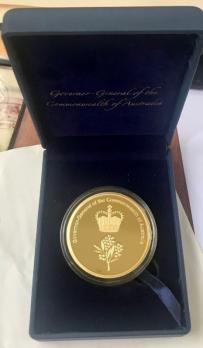
Most interesting career moment?
The day I got a call from a state-side friend asking if I’d like to be co-chair for a series of workshops at NASA Jet propulsion Laboratory on high-performance teams. I could not say yes fast enough, and a fantastic experience unfolded over the next few years, working with the Office of Safety and Mission Success.
I am the recipient of an award for services to the Community and AIPM in Project Management from His Excellency General the Honourable David Hurley C DSC (Retd), Governor-General of the Commonwealth of Australia.
If you aren’t in the office, what would we most likely find you doing?
I enjoy socializing with friends, often over a board game. I’m a lifelong gamer and enjoy a good challenge!
People would be surprised to know that …
I have three degrees, specializing in Philosophy of Mind. While that’s broadly about cognitive models and processing, it was vital training in critical thinking that has proven invaluable in artificial intelligence and machine learning – a key digital technology impacting the projects!
What do you enjoy most about being part of #OurJacobs?
Easy! The people. We have an amazing group of people I work with around the globe every single day. Suppose every Jacobs person had ten years of experience in and around projects and programs; that’s half a million years of experience to tap into, and the reality is likely much higher!
About the interviewee
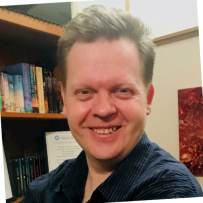
Ian Sharpe is Jacobs' Technical Director for Program Advisory in the Australia New Zealand region. An internationally respected leader in the program management (PM) industry, Ian has worked with a range of multinational organizations on their critical initiatives – including establishing and maturing global practices, frameworks, and capability on the project, program, program management office (PMO) operations and portfolio management. He has over 22 years of experience helping clients deliver real value from their key investments across multiple sectors, including utilities, mining, government, aerospace and astronautics, security and education. Ian has a passion for driving better investment, governance, and delivery through projects, programs, portfolios, and PMOs to get real value through the tight project, program, portfolio management governance, controls and agility. In 2020, Ian was awarded a medal for services to the Community and AIPM in Project Management from His Excellency General the Honourable David Hurley C DSC (Retd), Governor-General of the Commonwealth of Australia.
You might be interested in...
-
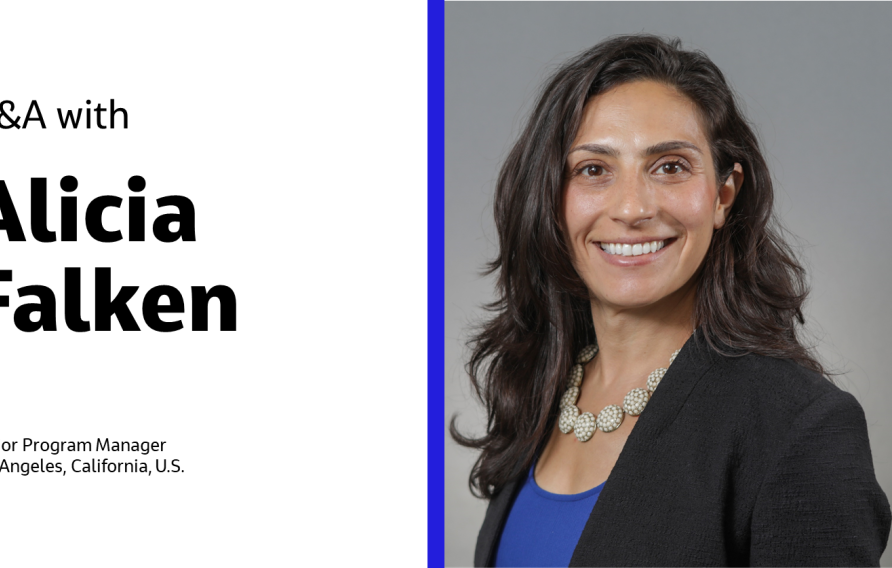 News
NewsQ&A: Talking with Alicia Falken, Senior Program Manager
We caught up with Alicia Falken, who recently joined Jacobs as the newest addition to our team of global program management specialists.
-
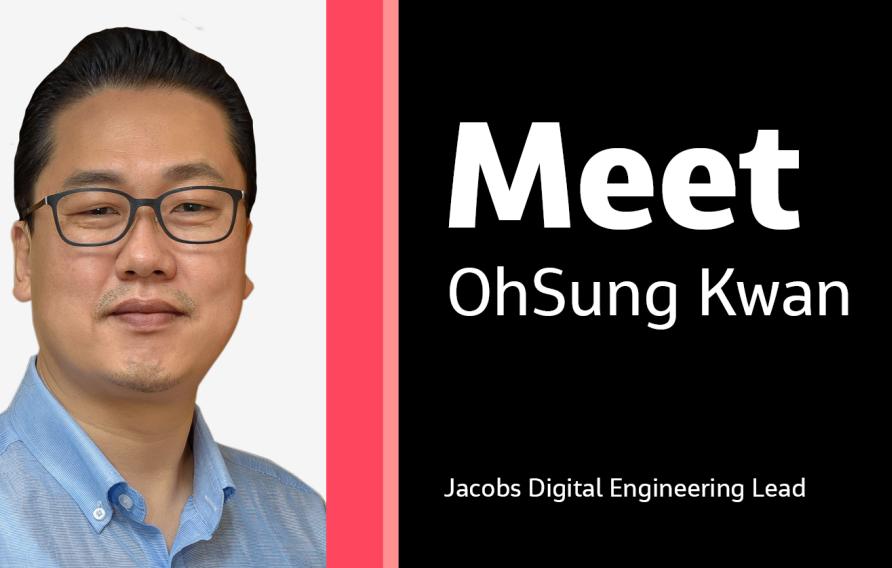 News
NewsQ&A: Talking with OhSung Kwan, Digital Engineering Lead
For this feature we caught up with Digital Engineering Lead OhSung Kwan who has won accolades from clients, contractors and vendors and has now been invited by the industry think tanks to look into digitalization in the industry. OhSung talks about the relevance of Building Information Modelling and its benefits.
-
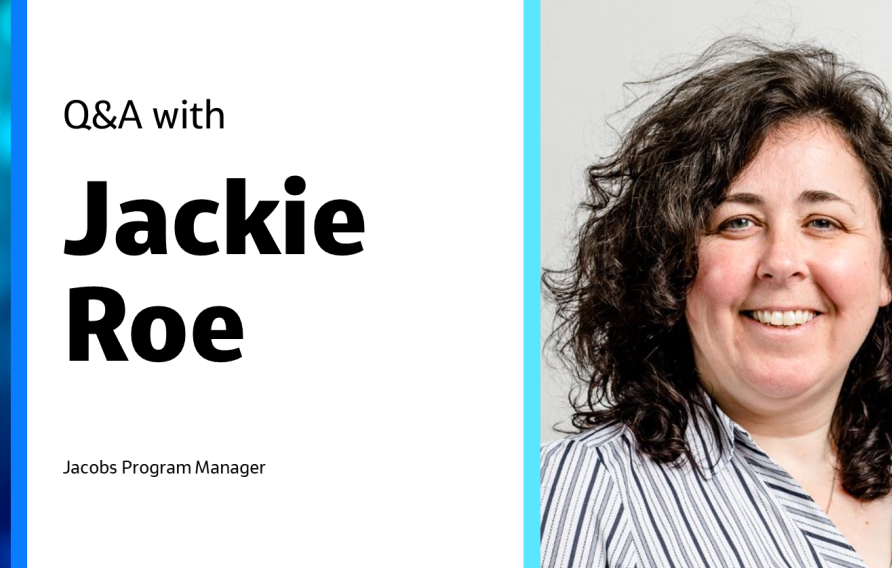 News
NewsQ&A: Talking with Program Manager, Jackie Roe
Jackie Roe is an experienced Program Director who has spent more than half her life managing some of the world’s most complex, time-sensitive and publicly sensitive infrastructure projects, including the Thames Tideway Tunnel Project, Rio 2016 Olympics and London 2012 Olympic and Paralympic Games. She has also worked in Australia supporting some of our Australian clients deliver their large-scale infrastructure projects, and is currently working on a major clean energy program in the U.K.
Join #OurJacobs team
What drives you drives us as we work to build a better world – together. At Jacobs, every day is an opportunity to make the world better, more connected, more sustainable.
We’re always looking for dynamic and engaged people to join our team. Bring your passion, your ingenuity and your vision.













































